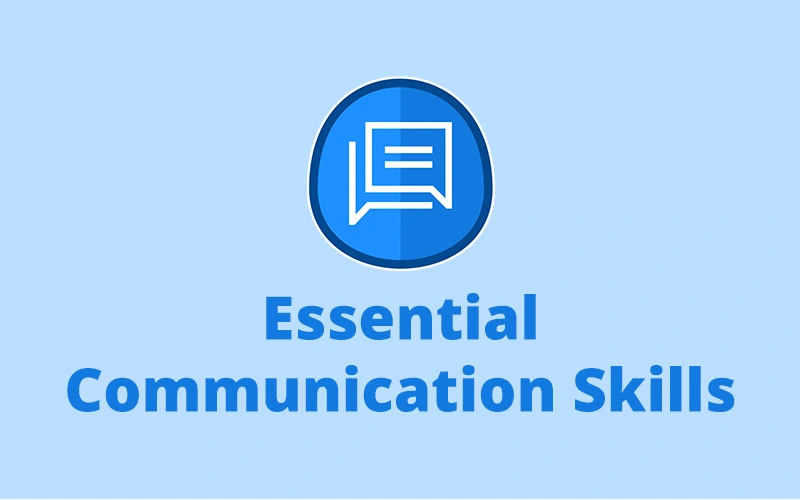What’s the one skill that can make or break your career, regardless of your industry or job title? The answer is simple: communication. From the smallest email exchange to the largest conference presentation, your ability to communicate effectively directly impacts your success. A recent study found that miscommunication costs businesses an average of $62.4 million annually, highlighting the critical role communication plays in every aspect of our careers. This post, the first in our new career skills series, will provide you with the tools and techniques you need to master this essential skill.
Why Communication Skills Matter
Effective communication isn’t just about exchanging words; it’s about conveying meaning, building relationships, and achieving shared goals. Strong communication skills benefit individuals by:
- Boosting Career Advancement: Clear communicators are often seen as leaders and are more likely to be entrusted with important projects and promotions.
- Improving Teamwork: Effective communication fosters collaboration, reduces conflicts, and ensures everyone is on the same page.
- Increasing Confidence: Knowing you can articulate your thoughts and ideas clearly boosts self-assurance in professional settings.
For organisations, strong communication translates to:
- Improved Productivity: Clear instructions and open communication channels streamline workflows and minimise errors.
- Stronger Client Relationships: Effective communication builds trust and rapport with clients, leading to stronger partnerships and increased business.
- Fewer Misunderstandings: Clear communication reduces the risk of costly mistakes and misinterpretations.
Key Communication Skills to Develop
Here are some essential communication skills to focus on:
- Verbal Communication
- Active Listening: This involves fully concentrating on what the other person is saying, asking clarifying questions, and summarising to ensure understanding. Practice: Before responding, summarise what you’ve heard in your own words.
- Clear and Concise Speaking: Structure your thoughts logically, use appropriate language (avoiding jargon when necessary), and speak with confidence. Practice: Record yourself speaking and analyse your clarity and pacing.
- Public Speaking/Presentations: While it can be daunting, effective public speaking involves preparation, practice, and connecting with your audience. Practice: Start by presenting to small groups of friends or colleagues.
- Written Communication
- Email Etiquette: Use clear subject lines, professional greetings and closings, and maintain a respectful tone. Proofread carefully before sending. Practice: Before hitting send, ask yourself: Is the message clear? Is the tone appropriate?
- Business Writing: Whether it’s a report, proposal, or memo, clarity and conciseness are key. Use proper grammar and spelling. Practice: Review examples of well-written business documents.
- Proofreading and Editing: Errors can damage your credibility. Always double-check your writing before submitting it. Practice: Use online grammar and spell checkers but also read your work aloud.
- Nonverbal Communication
- Body Language: Your posture, eye contact, and facial expressions communicate as much as your words. Maintain open posture, make appropriate eye contact, and be mindful of your facial expressions. Practice: Observe how others use body language and practice in front of a mirror.
- Tone of Voice: Your tone can convey enthusiasm, disinterest, or even sarcasm. Be mindful of your tone and ensure it aligns with your message. Practice: Record yourself speaking and listen to your tone.
- Digital Communication
- Netiquette: Maintain professional behaviour online, even in informal settings. Be respectful of others’ opinions and avoid flame wars. Practice: Review guidelines for online communication in professional settings.
- Communicating Across Platforms: Adapt your communication style to different platforms, whether it’s email, instant messaging, or video conferencing. Practice: Familiarise yourself with the features and etiquette of different communication platforms.
Developing strong communication skills is an ongoing process. By focusing on these key areas and practicing regularly, you can significantly enhance your professional success. Remember, effective communication is not just about talking; it’s about connecting, understanding, and building meaningful relationships.
In our next post, we’ll explore the importance of personal growth in your career journey. Stay tuned!
Stay Connected: Subscribe to our newsletter and follow us on social media to get notified when new content is published. We’d love to hear from you! Share your thoughts and experiences in the comments below.

